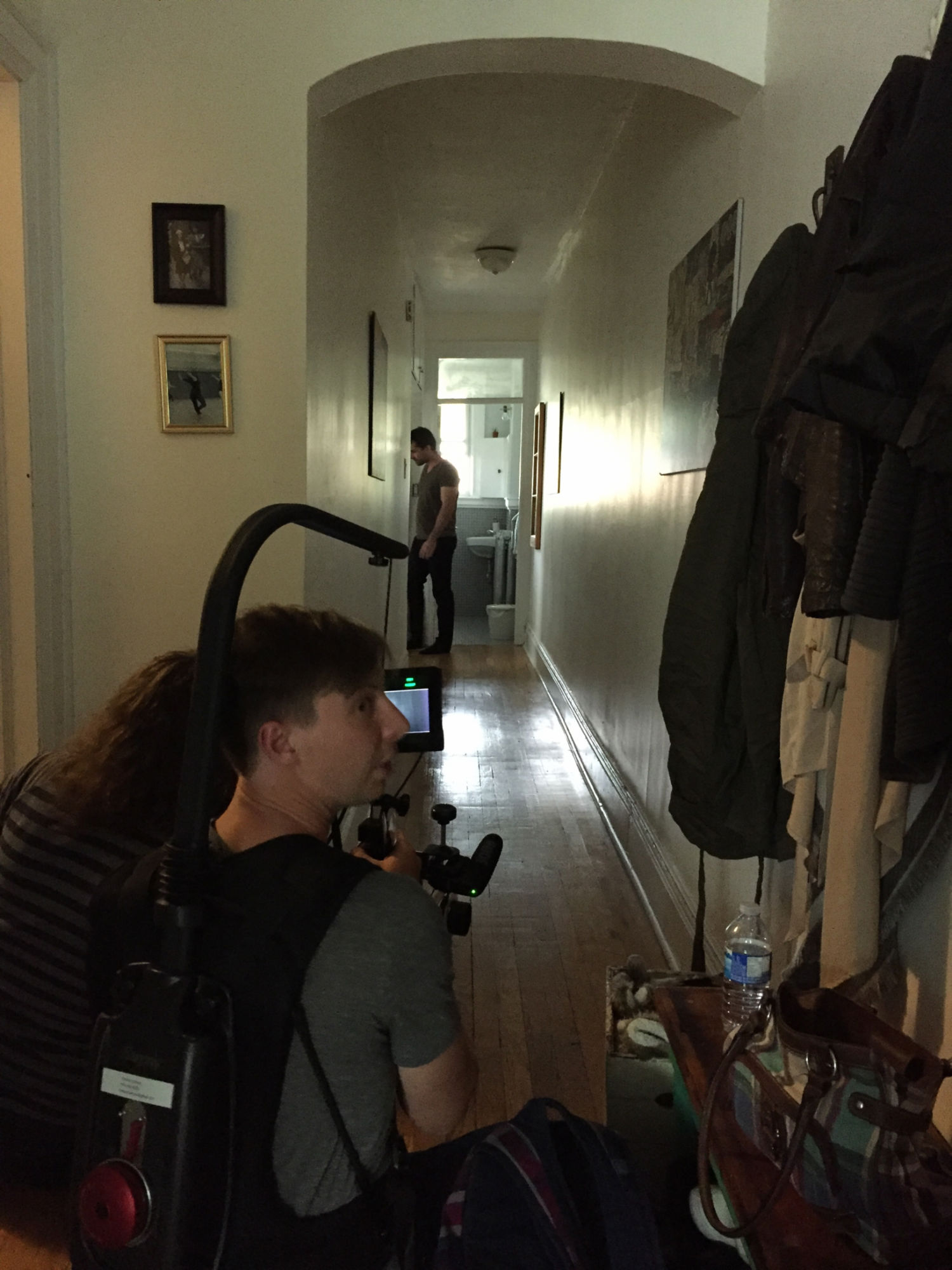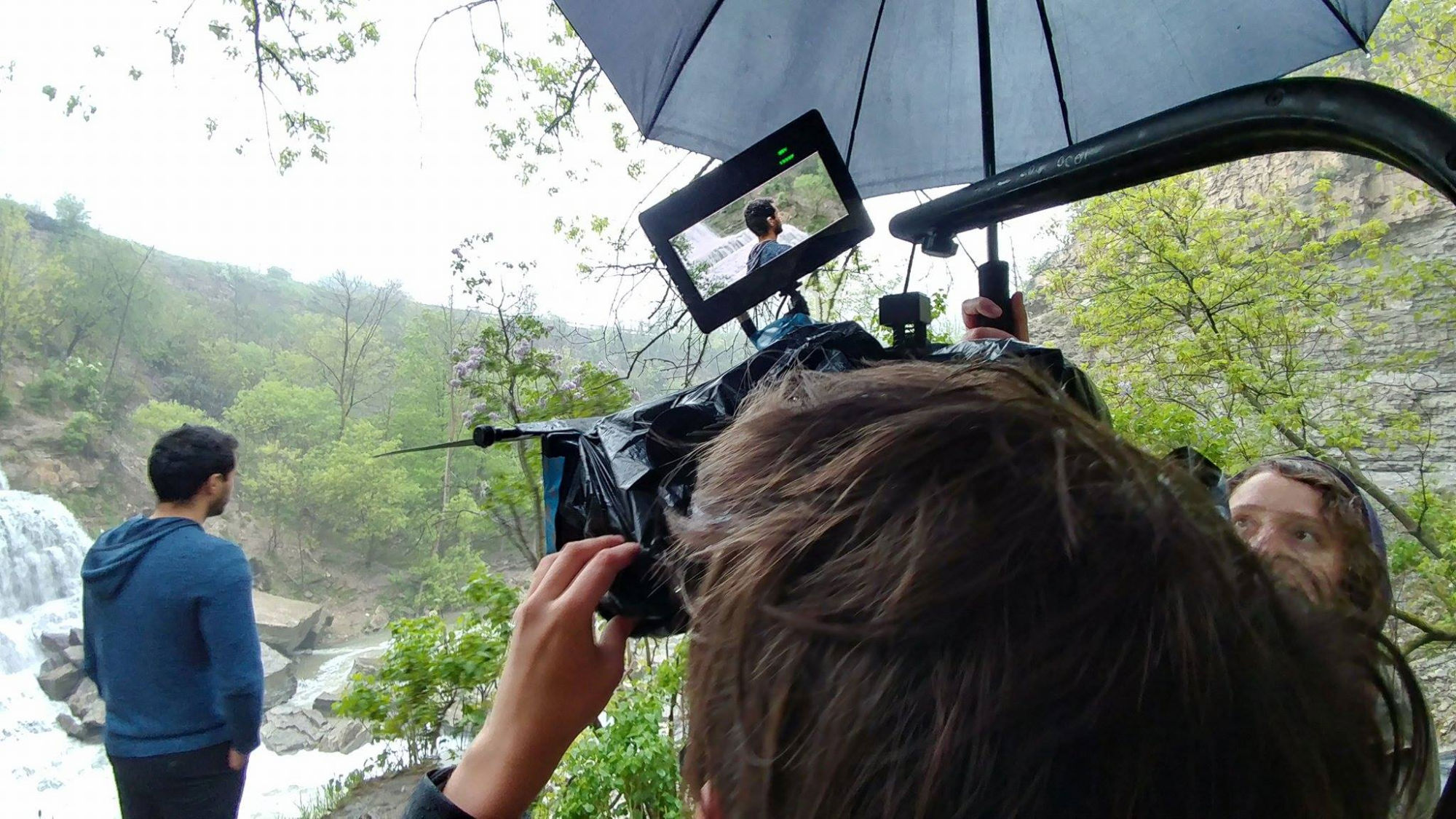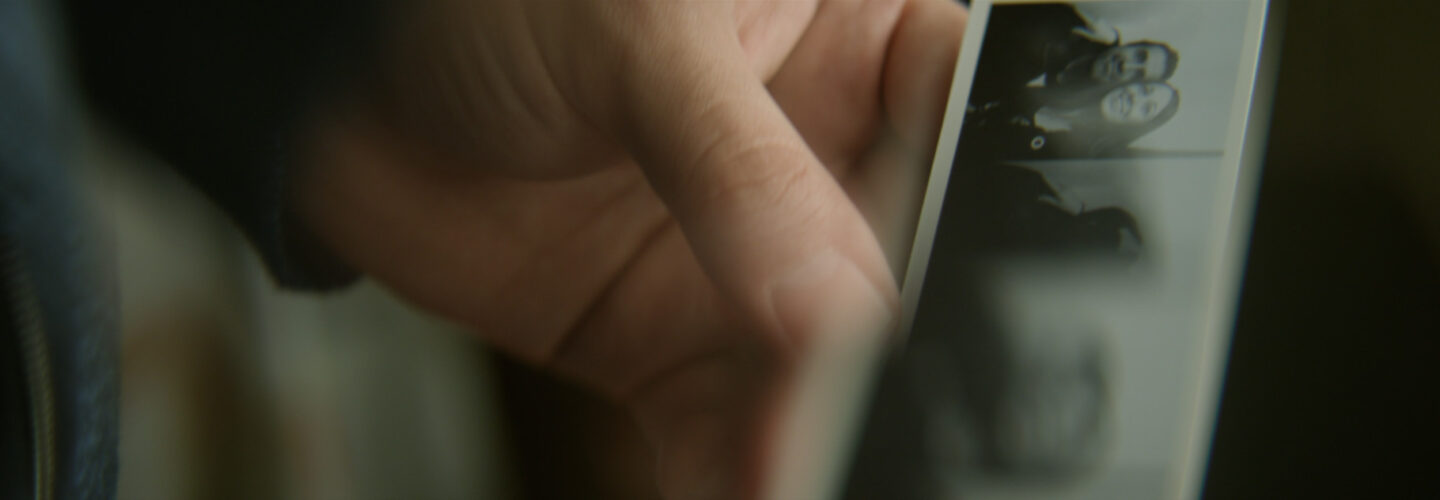
Inspired by and centred around a voice message that Director Shervin Kermani (last seen on DN with love through the ages short Eros) received from his ex-girlfriend following their breakup, The Last Message is a heartbreakingly potent example of the ways in which filmmaking born from the extremely personal can become deeply relatable and strike an emotionally resonant chord with audiences. Watch The Last Message below after which, Shervin shares how he crafted the ephemera of his past relationship into this crushingly raw, experimental documentary.
How did you come to create such a vulnerable and personal film about the end of your relationship?
The voice message is real and was recorded by my ex-girlfriend at the end of our relationship. When I listened to it for the first time, I was an emotional wreck. I don’t know what possessed me, but I masochistically searched my iPhone for all our videos together and started editing them, trying to process the feelings I was experiencing. A few trusted friends watched what I had pieced together and encouraged me to keep going. As the thought materialized that this might actually be a film, I showed a rough sequence to my ex-girlfriend who gave me her blessing to make it. Fully supporting me to create something that would showcase a message she left at her most vulnerable is a testament to her generosity and support. The film obviously only exists because of her. In making it, I hoped the piece would not only capture the sorrows of breaking up but also celebrate the joys that were shared.
How did you go about shaping the visual motif which would unite the related but disparate pieces of found footage from your time together with this emotionally potent voice message?
I worked with Cinematographer Jordan Kennington, who had just gone through a heartbreak of his own and was eager to shoot the film. It was Jordan who suggested we find a unifying visual motif, and we eventually settled on water as the central metaphor for the film as it evokes grief, cleansing, the flow of time, storms, serenity, and so much else. Building on this central visual theme, we experimented with objects in front of the lens that would create an abstracted image that sometimes looks like you’re observing things through water (or, as some have pointed out, through tears). We loved the unexpected visuals created by these distortions, and we both felt it would not only be evocative but suitable for a film dealing with the ambiguous emotions of a breakup.






I hoped the piece would not only capture the sorrows of breaking up but also celebrate the joys that were shared.
We shot on a Red Scarlet with a 50mm Kowa Anamorphic lens. Producer Alona Metzer organized the two day shoot, got a small handful of people to help us out, weathering rain and waterfalls to bring the film to life. By the end of the shoot, both Jordan and I were completely soaked, and we blasted the car heater on the drive back.
Were there any elements of your time together as a couple which you initially included but stepped back from as they felt too personal or raw?
I didn’t have too much video footage in general, let alone footage I felt was too personal to include. Generally, I documented moments where she was doing something silly or amusing I wanted to remember. The voice message, however, was longer than what I have in the final film. There were some parts of her message I included in earlier cuts which I eventually cut for the sake of concision or because they were too specific to our relationship to mean anything to a broader audience.

Likewise, are there cherished memories which evaded documentation at the time that you’d have liked to have been able to include?
So many memories evaded documentation that would have worked nicely in a piece like this, particularly conversations that we had or moments that featured the two of us interacting. There’s definitely a counter-argument to be made against those who preach living in the moment and putting down our phones. While being present is wonderful, sometimes I wish I had more evidence of the good times I’ve experienced.
While I was cutting the film, there was a long stretch where I felt I was missing footage from our relationship that would capture more of our dynamic and tie the piece together. It wasn’t until after I thought I picture locked the film that it suddenly occurred to me to look through the attachments of our message history, after which I found the footage she took of the cupcakes she made on my birthday. This footage, which came from her perspective, and felt both intimate and jovial, was the missing piece in the film. When I dropped it into the timeline, everything finally came together.
There’s definitely a counter-argument to be made against those who preach living in the moment and putting down our phones.
What were the challenges you faced when bringing everything together in post?
The biggest challenge in post-production was to find the right balance between the iPhone footage and what we had shot. The water themed shots were edited so that there was an arc to their energy, intensifying in the waterfalls and crashing waves until finally resolving into the gentle lapping shoreline near the end. The final shot of the film (of my ex-girlfriend driving away in the snow) was the actual last time we saw each other as a couple. Again, I’m not sure why my impulse was to grab my phone to record this moment, but I thought it would be important and something I would want to remember later. I didn’t expect at the time that it would make its way into a film. I’m not sure that anyone would assume there’s any significance to the shot, but as the last video I recorded while we were together, it felt like the right way to end the film.

Has the cathartic process of creating The Last Message reframed your views or feelings towards the relationship in any way?
Even before she left the message, when we had the discussions that led to our breakup, we were very conscious to part ways in a warm and amicable manner. I had gone through a really devastating breakup a few years earlier which had ended in a sudden and almost indifferent way, and the frosty dissolution altered the good memories of the preceding years such that I could no longer access their warmth or intimacy. Though I certainly experienced many wonderful moments in that previous relationship, they were somehow tarnished by how we parted ways.
The act of making the film became, among other things, a means of honoring and memorializing the connection we had.
I recently read Thinking, Fast and Slow, and was struck by the section on the peak-end rule, which suggests that the way things end has a disproportionate effect on the way they are remembered. I didn’t know there was a psychological theory behind this experience when I first went through it, but I knew having lived with its effects that I wanted this breakup to go differently. I wanted to hold onto the beauty of the relationship and to part ways feeling as good as we could about the experience.
Luckily she agreed with me and her message is the most obvious expression of this mutual desire to end on as good a note as we could. Likewise, the act of making the film became, among other things, a means of honoring and memorializing the connection we had. On a personal level, I’m very glad I made the film because it allows me to look back at two and a half years of my life with a sense of peace and fondness.

Have you been able to gauge how people have reacted to this deeply personal story?
It’s always tough to gauge reactions on something that’s as personal as this film. Will people feel comfortable enough to tell me the truth? Does anyone else feel anything while watching it? It’s been very touching to hear responses from people who told me how moved they were by the film. I was nervous leading up to its release, but reactions like that make it worth the risk.
Are there any new projects in the works we should keep an eye out for?
I’m currently editing a short experimental film about romantic missed connections and gearing up to shoot a performance driven short about the dissolution of a relationship. Clearly, love is a topic that’s on my mind these days. After these two shorts, I plan on making my first feature film.


